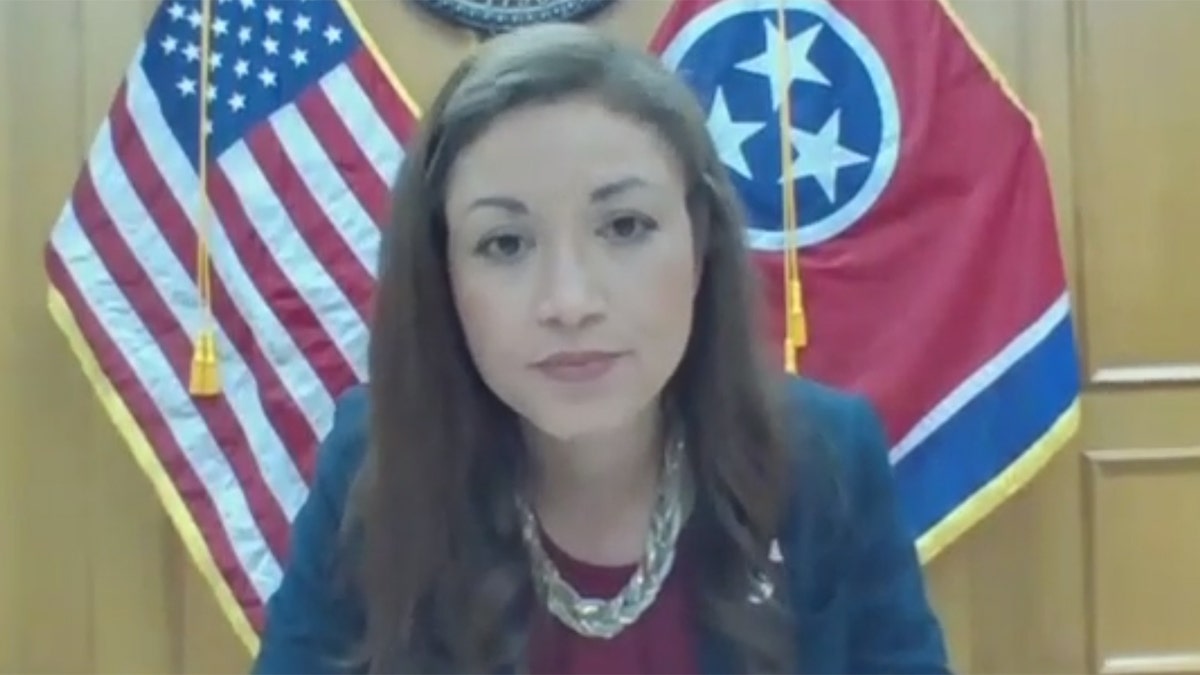Schools nationwide discuss how to reopen in fall
School administrators examine social distancing efforts; Doug McKelway reports.
A Senate committee hearing on reopening schools in the fall on Wednesday underscored the level of uncertainty facing American schoolchildren, teachers and parents after most children's recent school year was cut short due to the coronavirus pandemic.
Panelists and senators on the body's Health, Education, Labor and Pensions (HELP) Committee considered a broad range of issues including masks, Internet access, literacy and liability as the picture of what the 2020-2021 school year will look like remained murky.
"Any decision we make has significant costs. No easy answers or one-size-fits-all solutions," Dr. Penny Schwinn, the Tennessee education commissioner, told the committee. "We must keep people safe and we must keep kids educated. But our job and our responsibility is figuring out how to do that well."

Dr. Penny Schwinn, the Tennessee education commissioner, appeared before the Senate HELP Committee Wednesday to testify on reopening schools amid the coronavirus pandemic. (Senate HELP Committee)
SCHOOLS NATIONWIDE DISCUSS HOW TO REOPEN IN FALL
The hearing, which was held in the wake of racial protests over the death of George Floyd and as it's become increasingly clear that the coronavirus disproportionately affects minorities, also focused largely on how to avoid racial disparities in education during the upcoming school year.
"It is likely that some schools will need to keep their physical buildings closed, either fully or partially for all or some of our students," Sen Patty Murray, D-Wash., said. "Students facing some of the greatest challenges during COVID-19 [are] low-income students, students of color, students with disabilities, English learners, homelessness."
Sen. Bill Cassidy, R-La., also questioned Denver Public Schools Superintendent Susana Cordova on what would happen if schools were having children do distance learning and parents are unable to work from home -- an issue that disproportionately affects those with lower incomes.
"We are trying to work with local partners to see how we can provide more childcare," Cordova said. "We are really stymied by the size of our buildings to be able to have a number of students in our classrooms given the health guidelines."
WHO OFFICIAL WALKS BACK STATEMENT THAT ASYMPTOMATIC TRANSMISSION IS 'VERY RARE'
Dr. Matthew Blomstedt, the Nebraska education commissioner, told Cassidy that he is working on a "risk dial" to help decide whether or not schools in certain jurisdictions should send kids back to their buildings.
"If we see extensive spread it's going to need additional accommodations for health and safety. If there's very little, there's more ... attention to the individual health than what's happening in the school," he said. "We believe masks and other accommodations are going to be necessary all the time just to continue on that limited spread."
Cassidy doubted Blomstedt, saying he didn't believe public health experts would recommend students wear masks even in areas with low coronavirus spread.
On the topic of liability, Schwinn said her state was focused on ensuring teachers are thinking about teaching and not avoiding lawsuits.
"We know that our teachers are covered for tort liability through state law. We're currently having ongoing conversations," she said. "Certainly, we want to make sure there are enough protections that they are not so overfocused on some of the 'whether or not little Johnny has his mask on' in a kindergarten classroom that they're able to really focus on teaching literacy and mathematics and supporting the whole child."
Cordova added that the intersection of health and legal issues for her district created "a very large liability that we are very concerned about."
CLICK HERE TO GET THE FOX NEWS APP
The coronavirus has been shown to pose far less danger to children than to adults -- a reason why schools could potentially open up before large corporate offices do. But Murray also raised concerns about the health of educators, which did not get addressed substantively at the hearing. The health of vulnerable parents was also brought up.
Murray, at the end of the hearing, took a parting shot at the Trump administration. She said she wants the federal government to go all-in on supporting local school districts and is concerned that Education Secretary Betsy DeVos may pursue measures that increase the privatization of education in response to the pandemic.
"They need a massive investment in our public school system so schools have the resources they need to implement public health protocols, to measure and address learning loss among their students and to offset the declines that they're going to be seeing in state and local funding," she said. "What they don't need is Secretary DeVos using this crisis to push her privatization agenda and compound the difficulties they are facing."














































